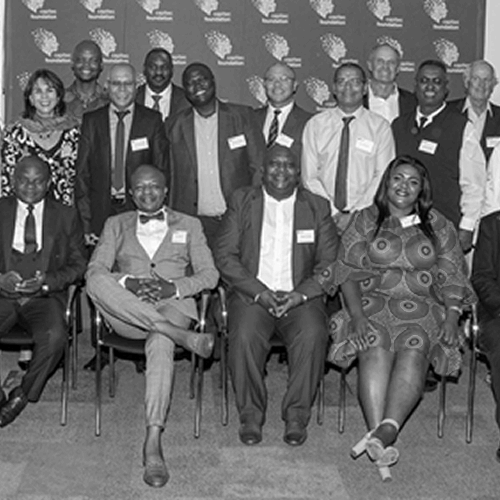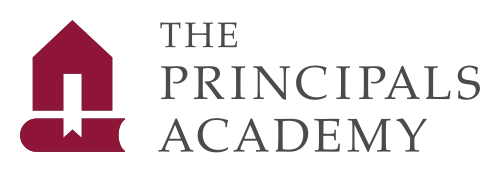Working together

We partner with UCT’s Graduate School of Business to offer the short course programme component offered to principals.
The Principals Academy has partnered with UCT’s Graduate School of Business since 2012 to offer a unique leadership short course programme for school principals in marginalised communities.
These principals face a Herculean task. They grapple with gangsterism, drugs, children coming to school hungry, and absentee staff. Yet, they strive to run successful schools and keep their staff motivated to deliver quality education. Originally, in 2012, the academic component included a diploma level Executive Management Programme for School Leaders. The programme has since been adapted to a part-time short course management development programme for school leaders. This allows the principals to complete the training, whilst applying these principles learnt on relevant problems in their specific school. It runs during school holidays from April to December each year and participants receive a certificate upon completion.

DELEGATES
Approximately 25-30 principals are selected for the programme each year, and selection is based on:
- School principal (must currently be a school principal in a permanent role).
- Be passionate and committed to the school and have a strong desire to foster solid relevant education.
- Not registered for another programme (Must not be registered or enrolled in any other leadership development programme, or any other course of study/qualification at a university or college.)
The GSB and key stakeholders will undertake a selection process in order to select candidates who have the ability to pursue a course of this nature and who will be able to produce positive measurable outcomes in their school environment.

PROGRAMME CONTENT
MODULE 1: PERSONAL MASTERY AND MANAGING COMPLEXITY
[March School Holidays – full-time residential component; delegates to stay at the GSB]
Topics covered in Module 1 will include:
- an introduction to the tools and techniques for unravelling complex human population systems;
- personal mastery – developing emotional intelligence and the ability to embrace diversity; and
- developing servant leadership characteristics.
After Module 1 delegates will:
- have a deeper understanding of themselves in relation to their context and hence how that translates into situations that are either difficult or easy to manage;
- be more capable of rigorous decision-making having understood their own worldviews and those of others, and challenged their beliefs based on these worldviews, so as to better understand the assumptions that drive their decisions and actions; and
- have started identifying key leverages for effective group learning and action.
MODULE 2: BUILDING BUSINESS ACUMEN
[June School Holidays – full-time residential component; delegates to stay at the GSB]
Topics covered in Module 2 will include:
- developing financial responsibility;
- developing technological skills; and
- developing data management skills
After Module 2 delegates will:
- have identified key activities that will enable them to run a financially sound operation;
- be able to design systems that optimise information that is available to them to gain insight into the functioning of their schools and the quality of education and teaching in them. This will allow them to identify key leverages for improvement;
- have identified and developed skills that improve their negotiation capacity; and
- be able to optimise technology to support their operation.
MODULE 3: MANAGING PEOPLE, TEAMS AND CHANGE
[October School Holidays – full-time residential component; delegates to stay at the GSB]
Topics covered in Module 3 will include:
- negotiation skills;
- mediation skills; and
- managing, monitoring and developing staff.
After Module 3 delegates will:
- be able to explain the best leverages for implementing successful change in their schools and the surrounding communities;
- develop an action plan for effecting such change; and
- have identified key leverages for optimising team functioning in their staff and broader governing board and community.
MODULE 4: ACTION LEARNING PROJECT
[December School Holidays – full-time residential component; delegates to stay at the GSB]
Module 4 is the final module of the programme where delegates will present their action plans for creating an African School of Excellence for the 21st Century. This will be based on the theory they have developed throughout the course and highlight an implementation plan based on the incremental implementation they will have conducted throughout the year.

EVALUATION
After each of the four modules at UCT GSB, the delegates are given an opportunity to rate and comment on the course content and the quality of presentation of each module.
GSB Principal Evaluation:
3 positions papers: 55%
3 reflective papers: 30%
Group work: 15%
Principals are also required to submit: weekly reflections, critical incident logs, know yourself workbook, become a better value creator workbook, ethics work book, achieve personal challenges work book and a financial assignment.
CONTACT US :
Cape Town,
Western Cape,
South Africa
Registration and Tax status: The Principals Academy Trust is a registered Trust (IT2943 / 2012) and Public Benefit Organisation with donor deductibility status / Section 18 A (PBO no: PBO 930 041 885).

